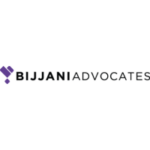-
What are the typical ownership structures for project companies in your jurisdiction? Does this vary based on the industry sector?
In Switzerland, project companies are typically structured in the form of a stock corporation (Aktiengesellschaften) or a limited liability company (Gesellschaft mit beschränkter Haftung), in each case directly or indirectly held by the Sponsor and/or the other investors (using both domestic and international holding structures). In any event, tax issues should be considered carefully when setting up the structure.
Both, stock corporations and limited liability companies are incorporated as separate legal entities and ownership is primarily based on capital contributions. Stock corporations are suitable for both small and large enterprises. Limited liability companies, which require slightly less initial capital, offer more flexibility in governance and come with certain specific additional requirements (such as, restrictions on the transferability of shares and disclosure of all shareholders’ identity in the commercial register).
-
Are there any corporate governance laws or accounting practices that foreign investors in a project company should be aware of?
In Switzerland no distinct, binding code on corporate governance has been enacted, but the rules on corporate governance and the duties of directors are primarily governed by generally binding acts, such as e.g. the Swiss Code of Obligations, the Swiss Merger Act, the Criminal Code and the company’s articles of association and organisational regulations. Listed companies and companies in certain industries (such as financial institutions) are subject to additional regulations. In addition, private organisations have published a number of (non-binding) codes on corporate governance, such as e.g. the Swiss Code of Best Practice for Corporate Governance, which is primarily observed by listed companies.
Swiss companies in the form of a stock corporation or limited liability company are generally subject to the accounting rules and principles outlined in the Swiss Code of Obligations. Such companies are free (and in limited cases required) to prepare additional financial statements in accordance with recognised accounting standards (such as Swiss GAAP FER, IFRS or US GAAP).
-
If applicable, what forms of credit support from sponsors or host governments are typically provided?
Borrowers typically receive syndicated or bilateral credit facilities for project financings. In this context, the project companies and certain group companies provide guarantees and grant security interests over their assets to the lenders. In addition, Sponsors sometimes also undertake towards the lenders to provide the project company with additional equity if required for purposes of the completion of the project.
In this context, Swiss law provides for a flexible and robust framework for this type of financing structures, thereby allowing for adaptation to the specific needs of borrowers and lenders on a case-by-case basis.
-
What types of security interests are available (and suitable) for a project financing in your jurisdiction? Are direct agreements used?
In Switzerland, usually a combination of security over different types of assets is used to secure the project financing. Lenders typically benefit from a share pledge over the Swiss project company and, in case of a real estate project, security over the relevant properties. In most cases, the security package is completed by other security provided by the project company and, of applicable, other group companies, such as security over (i) intra-group receivables, (ii) trade and/or lease receivables, (iii) insurance receivables, (iv) bank accounts and/or (v) intellectual property.
Security over the above asset classes is typically taken by way of a pledge (shares, bank accounts and intellectual property), a transfer of full legal title for security purposes (mortgage certificates), and an assignment for security purposes (receivables).
A pledge constitutes a limited right in rem in favor of the pledgee. Pledges are considered accessory security interests, which means, among other things, that the validity of the pledge depends on the continuation of the secured obligations and that the creditor of the secured obligations must be identical to the holder of the security interests.
In contrast, transfer of full legal title or assignment for security purposes are each considered non-accessory security interest, which means that the transfer or assignment is independent of the (continuing) validity of the secured obligations, and the holder of the security interests need not necessarily be identical to the creditor of the secured obligations.
Consequently, in the case of multiple secured parties, a security agent acts as a direct representative in the name and for the account of the secured parties in the case of accessory security interests under Swiss law and as a fiduciary in its own name but for the account of the secured parties in the case of non-accessory security interests under Swiss law.
In contrast to other jurisdictions, Swiss law does not know the concept of a floating charge or other non-possessory security over movable assets.
-
How are the above security interests perfected?
Real estate
Under Swiss law, security over real estate is typically created by way of taking security over mortgage certificates. A mortgage certificate is a negotiable instrument and may be issued in bearer or registered form. Alternatively, a mortgage certificate can also be created in paperless form by electronic registration in the relevant land register. A mortgage certificate creates personal, non-accessory claims against the debtor, which is secured by a lien on the relevant real estate property. The creation of new mortgage certificates requires a notarised deed and registration of the mortgage certificate in the land register. Registration fees for notarization vary from canton to canton but are often calculated on the nominal value of the mortgage certificate. The security over the mortgage certificate is created by way of (i) a written security transfer agreement and (ii) transfer of the mortgage certificate to the lender or security agent (i.e., in the case of physical mortgage certificates by transfer of possession and endorsement for registered mortgage certificates). Except in the case of paperless mortgage certificates, the transfer for security purposes of mortgage certificates does not require further notarisation or entry into the land register.Additional rules may apply in connection with cross-border transactions, whereby the parties may be advised to obtain clearance from the appropriate authorities with respect to the Federal Act on the Acquisition of Real Estate by Persons Abroad (known as the “Lex Koller”). Furthermore, interest payments to non-Swiss resident creditors of loans secured by Swiss real estate are subject to withholding tax at source, unless the lender is located in a jurisdiction that benefits from a double tax treaty with Switzerland providing for a zero rate and the lender qualifies for treaty protection (also see question 7).
Share pledge
Under Swiss law, shares in stock corporations and limited liability companies may be pledged by way of (i) a written pledge agreement and (ii) if physical share certificates have been issued, transfer of the physical share certificates to the secured party or the security agent (or any other person acting on behalf of them). In case of registered shares, the share certificates must also be duly endorsed in blank. A pledge over shares can be perfected even if no certificates have been issued. However, the issuance and handover of certificates is generally considered to bring the pledgees into a factually stronger position in the event of enforcement. Moreover, it is standard that any transfer restrictions in the target company’s articles of association are removed. Provisions in the articles of association limiting the representation of shareholders at shareholders’ meetings to other shareholders must also be lifted to ensure full flexibility once control over the shares has been gained.Receivables
Security over receivables (monetary claims under intra-group loan agreements or lease agreements, insurance claims, etc.) is created by way of a written security assignment agreement. The security assignment agreement must specify the relevant receivables and may also cover future receivables, provided the relevant claims are described in a manner that allows for clear identification once such claims come into existence. It should be noted, however, that receivables arising post-bankruptcy with a Swiss assignor would no longer be validly assigned and would fall in the assignor’s bankrupt estate. It is important that the agreement underlying the receivables does not contain any transfer restrictions as a contractual ban on assignment would render the assignment to be ineffective. Under Swiss law, notification of the third-party debtors is not a perfection requirement. However, as long as third-party debtors are unaware of the assignment, they can effectively fulfil their obligations by making payment to the assignor.Bank accounts
Security over Swiss bank accounts is typically taken by pledging the claims that the account holder has against the account bank by means of a written bank account pledge agreement. A Swiss bank at which the bank accounts are held will typically have pre-existing rights of set-off and pledge or other preferential rights under its general terms and conditions. Accordingly, the pledge is, technically speaking and in the absence of a waiver of the account bank, second ranking. Therefore, a notification of the account bank is mandatory to perfect the pledge over the bank accounts.Intellectual property
Under Swiss law, security over intellectual property is typically taken by way of a pledge. To effect the pledge, the pledgor and the pledgee enter into a written pledge agreement specifying the relevant intellectual property rights. Under Swiss law, no registration is required for the perfection of the pledge over intellectual property. However, if the pledge is not registered, the relevant intellectual property might be acquired by a bona fide third party, to the detriment of the pledge. While a Swiss law pledge on foreign intellectual property is valid under Swiss law, it should be examined whether the validity of the pledge is also recognized under the relevant foreign law, or whether – for example – registration of the pledge would be a perfection requirement. Accordingly, in the case of foreign intellectual property of some importance and value, it is advisable to have the pledge registered in the relevant register. Security agreements generally provide for a registration requirement for the lien on important intellectual property on the first day and for all other intellectual property upon the occurrence of an event of default.Movable property
Security interests over movable property can generally be created in the form of a pledge or a security transfer of full legal title under Swiss law. It should be noted, however, that Switzerland adheres to the system of the possessory pledge, i.e. movable property must pass into the possession of the pledgee or a pledgeholder who holds the possession for and on behalf of the pledgee. For as long as the pledgor retains exclusive power of disposal over the movable asset the security is not perfected. Because of the possessory nature of the pledge, particular thought must be given to structuring suitable security over inventory, (raw) materials in the manufacturing process or movables in transit. In certain cases, a seller will wish to retain full legal title until he receives full payment from an acquirer. This can be achieved by a special retention of title provision in the sales agreement plus registration in a retention of title register. However, such registration is complicated and in practice is hardly ever used, and if so, only in a situation of potential financial distress.The role of the security agent
In the case of a syndicated facility agreement or multiple lien financings, one creditor or a third party is usually appointed to act as security agent to hold the security for and on behalf of the project lenders. For non-accessory securities (e.g., assignment of receivables), the security agent typically acts as fiduciary in its own name but for the benefit of the secured parties. For accessory securities (e.g., pledges), the security agent acts as direct representative in the name and on behalf of the secured parties (and for itself if it is also a secured party). Generally, the security agent is not required to be licensed. -
Please identify how security is enforced (notably the enforcement options available for secured parties) both pre and post insolvency/bankruptcy of the project company?
The main types of security interest are enforced either by private enforcement or by official debt and bankruptcy proceedings in accordance with the Swiss Act on Debt Enforcement and Bankruptcy (DEBA). The security agreement typically provides that the secured party may, in its discretion, enforce the security by way of either official debt and bankruptcy proceedings in accordance with the DEBA or by way of private enforcement without regard to the procedures and formalities of the DEBA, including the right of the secured party to itself purchase the collateral.
In a private enforcement, the secured party is obliged to execute the enforcement in a way that enables it to obtain the best price for the assets under the given circumstances. The value of the collateral will thus typically be determined based on the market value (eg, stock exchange price, if available) or by appraisal as per the date of the sale. If the enforcement proceeds are higher than the secured claims, any surplus must be returned to the secured party. Although the parties may agree to settle a private enforcement in a foreign currency, claims in foreign currency will be enforced by official enforcement proceedings in Switzerland only in Swiss francs.
After the opening of bankruptcy procedures over the security provider, pledged assets will form part of the security provider’s bankruptcy estate. Private enforcement of those assets will then no longer be permitted and foreclosure must occur by way of official debt and bankruptcy proceedings in accordance with the DEBA.
-
What are other important considerations in relation to the security regime in the jurisdiction that secured parties should be aware of?
Financial assistance and upstream and cross-stream security / guarantees
Under Swiss corporate law, the granting of a guarantee, indemnity or security interest for obligations of a Swiss company’s direct or indirect shareholder (upstream) – or an affiliate or subsidiary of such direct or indirect shareholder (cross-stream) – is subject to certain mandatory financial assistance limitations. In particular, if not granted at arm’s length, the amount of such (up- or cross-stream) guarantee, indemnity or security interest will be limited to the freely distributable equity capital of the Swiss company. These limitations may affect the security substantially, particularly in situations of financial distress. However, if structured properly and if using all available mitigants, such limitations are generally accepted by both investors and lenders.
In addition, the granting of an up- or cross-stream guarantee, indemnity or security interest needs to be approved by the Swiss company’s competent corporate bodies and the Swiss company’s articles of association must provide for a permission of such financial assistance in the corporate purpose clause.
Withholding tax at source applicable to cross-border transactions secured by Swiss real estate
In cross-border transactions secured by Swiss real estate, interest payments to non-Swiss resident creditors are subject to withholding tax at source, unless the lender is located in a jurisdiction that benefits from a double tax treaty with Switzerland providing for a zero rate. Accordingly, if a transaction is secured by Swiss real estate, it must be ensured that only “Swiss treaty lenders” will be secured by Swiss real estate in order to
avoid the risk of withholding tax being applied to interest payments.Swiss treaty lenders are persons who (i) have their corporate seat – or are lending through a facility office that qualifies as a permanent establishment for tax purposes in Switzerland and are entitled to receive any payments of interest without any deduction under Swiss tax law; or (ii) lend in a jurisdiction with whom Switzerland has a double tax treaty that provides for a 0% withholding tax rate on interest payments.
-
What key project risks should lenders be aware of in project financings in your jurisdiction? This may include, but may not be limited to, the following risks: force majeure, political risk, currency convertibility risk, regulating or permitting risk, construction/completion risk, supply or feed stock risk or legal and regulatory risk).
Project risks and potential mitigants largely depend on the particularities of a specific project and will thus need to be analysed on a case by case basis. For certain risks, insurances may be available and requested by lenders, such as e.g. for force majeur risks or political risks under export credit insurances. Other risks, such as legal and regulatory risks may be mitigated by choosing adequate jurisdictions and governing laws, whereby Switzerland is generally considered to have a reliable and stable judicial system.
-
Are any governmental / regulatory consents required and are any financing or project documents requirement to be filed with any authority in order to be admissible in evidence in a court of law, valid or enforceable?
Depending on the specifics of a project, project documents and information may need to be submitted to competent authorities for information and/or approval. This is particularly relevant for real estate projects which may be subject to applicable public law requirements. Also, when it comes to transactions in the real estate sector, notarial certifications are often necessary to be able to legally conclude a transaction.
If the project involves the acquisition of – or the granting of security interests over ‒ non-commercial real estate located in Switzerland by a foreigner, the specific restrictions and requirements of the Lex Koller may apply. In such case, careful structuring of the transaction is required and a permit from the competent authorities may be required. Likewise, if the respective real estate is subject to Swiss rural and land protection legislation, approval may need to be sought from the competent authorities for an investment by foreign parties.
-
Are there are any specific foreign exchange, royalties, export restrictions, subsidies, foreign investment, that are relevant for project financings (particularly in the natural resources sectors)?
There are currently no foreign exchange, royalties, subsidies or foreign investment restrictions in Switzerland in relation to foreign investments. Export restrictions under Swiss law may extend to nuclear energy, water for energy production, weapons of mass destruction and goods that are useable for military purposes. In light of the Ukraine war, export restrictions on dual-use goods have come to the foreground.
In December 2023, the Federal Council adopted the dispatch on a draft investment screening act to the parliament, which provides for investment screening with a focus on state-controlled investors and domestic companies operating in particularly critical sectors. The proposed act is currently subject to parliamentary deliberations and is not expected to come into force before 2028.
-
Please set out any specific environmental, social and governance issues that are relevant. For example, are project companies subject to certain ESG laws, reporting requirements or regulations?
Sustainability is becoming more and more important in the Swiss financial sector. On 1 January 2022, the Swiss Code of Obligations has been amended to provide for general reporting and disclosure obligations on non-financial matters (e.g. risks of their business activities regarding environmental matters, social issues, employment-related issues, human rights and the combating against corruption) which have become applicable to listed companies, companies supervised by FINMA and other large companies as of 1 January 2023. In June 2024, the Federal Council opened the consultation process for the corresponding amendments to the Swiss Code of Obligations. In it, it proposes stricter rules for sustainability reporting.
In addition, in implementation of measure 17 of the Action Plan 2021-2023 to its Sustainable Development Strategy, the Swiss Federal Council has issued an ordinance detailing the disclosure obligations of the aforementioned companies on climate matters on the basis of the recommendations of the TCFD. The ordinance will enter into force on 1 January 2024. However, for companies that do not fall within the scope of these new regulations (including typically project companies), there are still no general ESG reporting requirements under Swiss law. Furthermore, in June 2024, the Federal Council approved the report on the implementation of the Corporate Social Responsibility (CSR) Action Plan 2020–2023 and the next steps. They concern the activities of the National Contact Point, the monitoring of legislative processes and the support of SMEs (small and medium-sized enterprises), as well as the maintenance of policy coherence.
-
Has any public-private partnership models or laws been enacted in the jurisdiction, and if so, are they specific to certain industry sectors?
In Switzerland, there is no legislation that specifically deals with public private partnership (PPP) projects in the traditional sense. However, PPP transactions are permissible under the current legislation at a federal and cantonal level. Depending on the specifics of a particular project and on the sectors involved (e.g., infrastructure and construction, culture, education, healthcare, defense, or waste removal), various legal statutes and regulations may apply at the federal, cantonal and also communal level, such as the Federal Public Procurement Act for the Swiss Confederation՚s public procurement projects.
-
Will foreign judgments, arbitration awards and contractual agreements to arbitrate be upheld?
Swiss courts would recognise a final and conclusive civil judgment of a foreign court, or an arbitral award for a monetary claim obtained in the competent foreign courts or from the competent arbitral tribunal, subject to limitations set forth respectively in the Swiss Private International Law Act (PILA) and – with respect to foreign arbitral awards – in international treaties such as the Lugano Convention on Jurisdiction and Enforcement of Judgments in Civil and Commercial Matters and the New York Arbitration Convention.
-
Is submission to a foreign jurisdiction and waiver of immunity effective and enforceable?
A Swiss company may subject itself to foreign jurisdiction. Also, state-owned private enterprises are free to do so with respect to their private (as opposed to public) activities.
As a general principle under Swiss law, where a party enjoys sovereign immunity, it cannot be party to proceedings before Swiss courts nor can its assets be subject to enforcement measures. In principle, sovereign immunity from jurisdiction and execution may be validly waived. For the waiver of immunity from jurisdiction and/or execution to be valid, the party enjoying immunity must consent to the exercise of the Swiss courts of jurisdiction over the dispute. It should be noted, however, that there is only little case law dealing with waivers of immunity and therefore a degree of uncertainty remains, including as to the requirements for a waiver of immunity to be valid.
-
Please identify what you consider to be (a) the key current issues for project financing in your jurisdiction; and (b) any emerging trends or topics which should be considered or focused on by project financing stakeholders in this jurisdiction.
Private credit funds continue to be active in the Swiss market and it appears that the number of leveraged finance transactions (including project financings) involving private credit is continuing to increase. However, the market share of private credit has not yet reached a level close to other jurisdictions such as Germany or the UK. Whilst there is no exact data available, the reasons for such (still) relatively low market share of debt funds in the Swiss lending market could be that Swiss banks continue to be very active in the market and are normally able to offer competitive rates and overall conditions.
-
Please identify in your jurisdiction what key legislation, subsidy regimes or regulations have been implemented (or will / plan to be) for projects in connection with the energy transition and/or specific projects due to energy security?
Switzerland is committed to the UN 2030 agenda and sustainable development goals (SDG) and in June 2021, the Swiss Federal Council has adopted its 2030 Sustainable Development Strategy and the corresponding Action Plan 2021–2023 by defining three priority themes (sustainable consumption and production; climate, energy and biodiversity; equal opportunities and social cohesion) and a total of 22 implementing measures, respectively. In addition, Switzerland has ratified the Paris Agreement and aims to reduce its greenhouse gas emissions to net zero by 2050.
The primary instrument for achieving Switzerland’s carbon emissions reductions targets are measures imposed under the Federal Act on the Reduction of CO2 Emissions (CO2 Act). The CO2 Act as currently in force focusses on measures in the building, transportation and energy sector as well as (other) emissions intensive industries. In September 2022, the Swiss Federal Council presented an amended draft for a revised CO2 Act for the period after 2024 providing, among others, for measures to reduce CO2 emissions and an obligation of FINMA to report on the risks for financial institutions posed by climate change.
In addition, FINMA has already implemented climate-risk-related disclosure requirements for large banks and insurance companies in July 2021 on the basis of its general mandate to protect creditors, investors and insured persons as well as the functioning of financial markets in Switzerland.
In March 2024, the Swiss Parliament approved a revision of the CO2 Act. The aim is to halve greenhouse gas emissions by 2030 compared to 1990 levels. The revised CO2 Act comes into force on 1 January 2025. Furthermore, in June 2024, the Federal Council opened the consultation on the CO2 Ordinance. It sets out the greenhouse gas reduction targets for the various sectors up to 2030 and specifies the measures required to achieve them.
In addition, the Federal Energy Act aims to reduce energy consumption, increase energy efficiency and promote renewable energies. Also, the construction of new nuclear power plants is prohibited. However, this prohibition is being reconsidered by the Federal Council.
-
Please identify if there are any material tax considerations which need to be taken into account for a project financing in your jurisdiction, and if so, how such tax issues can be mitigated.
Withholding Tax
Interest payments made by Swiss borrowers under certain collective fundraising transactions (including bonds and syndicated credit financings) may be subject to Swiss withholding tax (at a current rate of 35%). Such withholding tax is levied if a Swiss debtor borrows from more than 10 non-banks under one instrument (10 Non-Bank Rule) or from more than 20 non-banks in aggregate (20 Non-Bank Rule) (collectively, the Swiss Non-Bank Rules). For purposes of the Swiss Non-Bank Rules, a “bank” is defined as a financial institution that (i) is licensed as a bank in Switzerland (or at its foreign place of incorporation) and (ii) carries out genuine banking activities with infrastructure and personnel of its own. In contrast, any entity or person that is not a “bank” in this sense qualifies as a “non-bank”.Under the Swiss Non-Bank Rules, special consideration must also be given when Swiss entities act only as guarantors in the structure (but not as borrowers) – for example, where proceeds from the financing might be used in Switzerland.
In order to avoid withholding tax on interest payments, facility agreements with a Swiss borrower or guarantor are typically drafted to address and ensure compliance with the Swiss Non-Bank Rules (including by respective representation and warranties as well as restrictions on transfers to non-banks).
Other Taxes, Duties, Charges
The transfer of certain security papers may be subject to Swiss federal transfer stamp duty. Special source taxes may, subject to double taxation treaties, apply at a cantonal and federal level on interest payments in connection with claims that are secured by Swiss real estate in Switzerland (see question 7). A Swiss withholding tax (currently 35%) may apply on dividend payments made by a Swiss company, which may be refundable depending on applicable double taxation treaties. Furthermore, a moderate issuance stamp duty rate applies when incorporating a Swiss stock company with capital of more than CHF1 Million. -
What types of funding structures (e.g. debt, equity or alternative financing) are typical for project financing in your jurisdiction. For example, are project bond issuances, Islamic finance and – in the context of mining deals – streams or royalties, seen as attractive (and common) options for stakeholders? Are you seeing private credit in project financing in your jurisdiction or other alternative financiers? If so, what types of projects are they looking to finance and what are the key structuring issues of such financings?
Project financing in Switzerland is typically funded by debt financing (including financings covered by the export credit agency), mezzanine financing, equity financing and/or government subsidies.
In the Swiss market, the majority of institutions acting as lenders are Swiss and international banks. On the other hand, private credit continues to be active in the Swiss market and it appears that the number of leveraged finance transactions involving debt funds is continuing to increase. However, the market share of private credit has not yet reached a level close to that in other jurisdictions such as Germany or the UK (also see question 15).
-
Please explain if there are any regional development banks or export credit agencies, and if so, what is their role in project financing in your jurisdiction and beyond.
The Swiss Export Risk Insurance (SERV), the official export credit agency of Switzerland, offers various insurance and guarantee products that cover different risks, such as political or credit risks.
-
Please explain if there are any important insurance law principles or considerations in connection with any project financing in your jurisdiction.
Typical risks such as force majeure, property damage, own or third-party liability, business interruption, construction or employees are often covered by insurance agreements. For example, in some cantons there is an obligation to take out building insurance, which is offered by state insurance companies. The building insurance covers fire and natural hazards.
-
Please explain if there are any issues with entering into any hedging arrangements in this jurisdiction.
Heding agreements are regularly used in Switzerland to hedge interest rate and FX risks in connection with project financing transactions. Parties typically used the applicable ISDA Master Agreement or the Swiss Master Agreement for OTC derivative transactions (SMA), in each case adapted to the particular transaction structure.
Switzerland: Project Finance
This country-specific Q&A provides an overview of Project Finance laws and regulations applicable in Switzerland.
-
What are the typical ownership structures for project companies in your jurisdiction? Does this vary based on the industry sector?
-
Are there any corporate governance laws or accounting practices that foreign investors in a project company should be aware of?
-
If applicable, what forms of credit support from sponsors or host governments are typically provided?
-
What types of security interests are available (and suitable) for a project financing in your jurisdiction? Are direct agreements used?
-
How are the above security interests perfected?
-
Please identify how security is enforced (notably the enforcement options available for secured parties) both pre and post insolvency/bankruptcy of the project company?
-
What are other important considerations in relation to the security regime in the jurisdiction that secured parties should be aware of?
-
What key project risks should lenders be aware of in project financings in your jurisdiction? This may include, but may not be limited to, the following risks: force majeure, political risk, currency convertibility risk, regulating or permitting risk, construction/completion risk, supply or feed stock risk or legal and regulatory risk).
-
Are any governmental / regulatory consents required and are any financing or project documents requirement to be filed with any authority in order to be admissible in evidence in a court of law, valid or enforceable?
-
Are there are any specific foreign exchange, royalties, export restrictions, subsidies, foreign investment, that are relevant for project financings (particularly in the natural resources sectors)?
-
Please set out any specific environmental, social and governance issues that are relevant. For example, are project companies subject to certain ESG laws, reporting requirements or regulations?
-
Has any public-private partnership models or laws been enacted in the jurisdiction, and if so, are they specific to certain industry sectors?
-
Will foreign judgments, arbitration awards and contractual agreements to arbitrate be upheld?
-
Is submission to a foreign jurisdiction and waiver of immunity effective and enforceable?
-
Please identify what you consider to be (a) the key current issues for project financing in your jurisdiction; and (b) any emerging trends or topics which should be considered or focused on by project financing stakeholders in this jurisdiction.
-
Please identify in your jurisdiction what key legislation, subsidy regimes or regulations have been implemented (or will / plan to be) for projects in connection with the energy transition and/or specific projects due to energy security?
-
Please identify if there are any material tax considerations which need to be taken into account for a project financing in your jurisdiction, and if so, how such tax issues can be mitigated.
-
What types of funding structures (e.g. debt, equity or alternative financing) are typical for project financing in your jurisdiction. For example, are project bond issuances, Islamic finance and – in the context of mining deals – streams or royalties, seen as attractive (and common) options for stakeholders? Are you seeing private credit in project financing in your jurisdiction or other alternative financiers? If so, what types of projects are they looking to finance and what are the key structuring issues of such financings?
-
Please explain if there are any regional development banks or export credit agencies, and if so, what is their role in project financing in your jurisdiction and beyond.
-
Please explain if there are any important insurance law principles or considerations in connection with any project financing in your jurisdiction.
-
Please explain if there are any issues with entering into any hedging arrangements in this jurisdiction.














